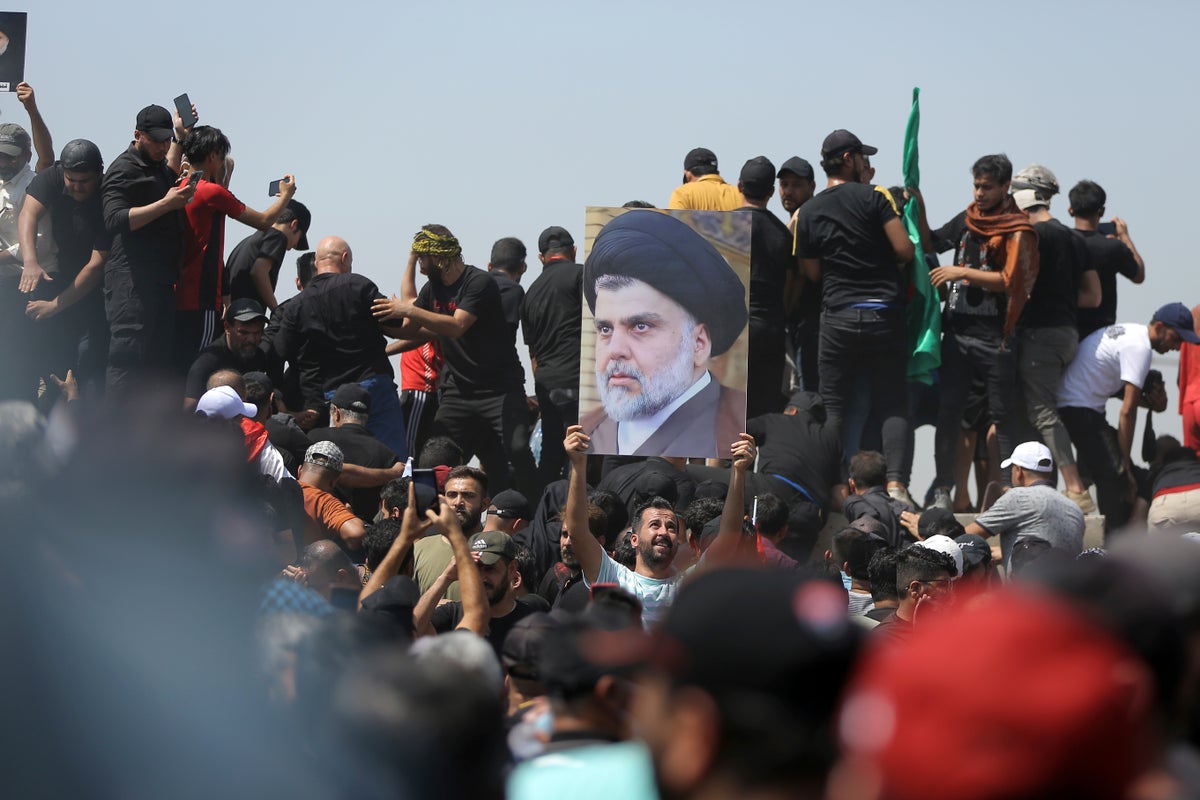
Iraq’s caretaker prime minister called a meeting of senior political leaders and party representatives Wednesday, seeking a way out of a monthslong crisis amid a power struggle between rival Shiite blocs. But the party of influential Shiite cleric Muqtada al-Sadr did not attend the gathering.
The absence of al-Sadr's bloc effectively undermined Caretaker Prime Minister Mustafa Al-Kadhimi's effort to resolve the 10-month crisis.
Al-Sadr and his political rivals, the Iran-backed Shiite groups, have been at odds since after last year's parliamentary elections. Al-Sadr won the largest share of seats in the October vote but failed to form a majority government.
His bloc later resigned from parliament and his supporters last month stormed the parliament building in Baghdad. Al-Sadr has demanded that parliament be dissolved and early elections held.
Leaders of Iran-backed Shiite groups, Iraq's Sunni and Kurdish political blocs, and the head of the country's High Judicial Council attended Wednesday's meeting, as did the U.N. special representative, Jeanine Hennis-Plasschaert.
After the meeting, a statement from al-Kadhimi’s office said the discussions focused on possible solutions to the political crisis, prioritizing the maintaining of peace among Iraqis. Al-Sadr last Wednesday gave the judiciary a week to dissolve the legislature, to which it responded saying it has no authority to dissolve parliament.
On Saturday, he called on his followers to be ready to hold massive protests all over Iraq but then indefinitely postponed them after Iran-backed groups called for similar rallies the same day, saying he wants to preserve peace and that “Iraqi blood is invaluable" to him.
Al-Sadr's Shiite rivals from the Coordination Framework, an alliance of Iran-backed parties, said earlier that parliament would have to convene to dissolve itself.







